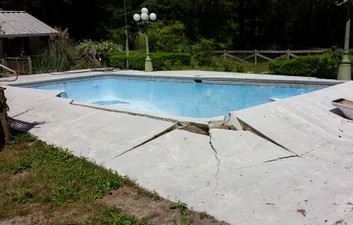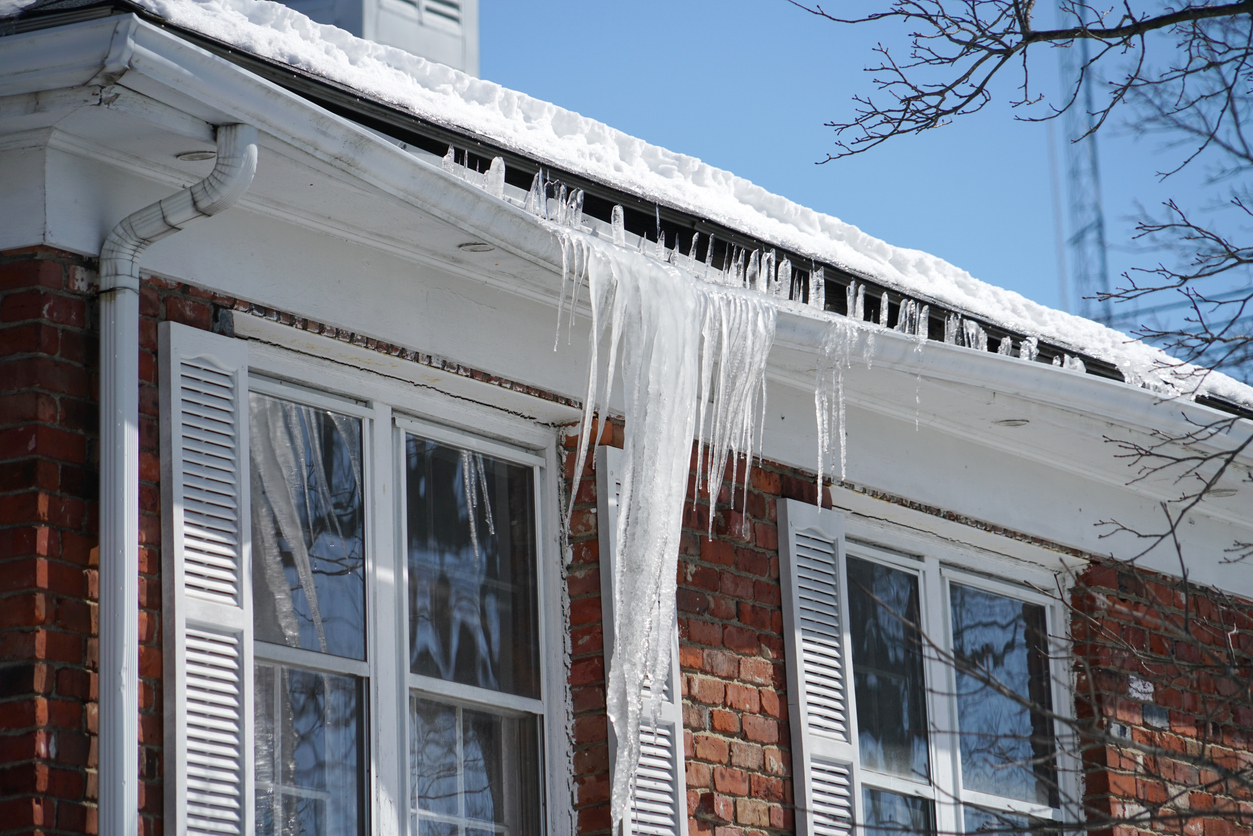After what felt like months of rain, New York is now facing a record-breaking heatwave, with temperatures soaring into the 100s. In weather like this, city-dwellers often flee the sweltering streets in search of relief in the suburbs, where backyard pools offer a much-needed escape.
As I’m writing this in my Midtown apartment, I would just about kill for a pool. However, those who actually have one know how much work it can be, requiring extensive maintenance and posing many hidden costs. One of those “hidden costs” is a costly one that many homeowners may be unaware of. We call them “pool popping” cases, where an in-ground pool literally floats out of the ground, often causing extensive damage to patios, plumbing, and the pool shell itself in the process. These losses are not just expensive – they are also generally excluded under homeowners insurance policies, leaving policyholders to foot the bill on their own.
What Is a Pool Pop-Up, and Why Does It Happen?
A “pool pop-up” occurs when hydrostatic pressure from groundwater forces an in-ground pool shell to lift or shift, thereby “popping” out of the ground. It generally only occurs when a pool is drained or partially emptied, because a full pool has enough downward pressure from the water in it to balance out the upward force from groundwater. When a pool is emptied—whether for cleaning, maintenance, or repairs—it becomes vulnerable to a pop-up, particularly if the surrounding groundwater level is high (common after heavy rains or storms) because the unbalanced pressure can push the empty shell out of the ground.
Why These Claims Are Often Denied
Many homeowners assume such a major loss would be covered under their property insurance. However, these claims often run into several common exclusions, including those for groundwater and hydrostatic pressure, cracking or expansion, earth movement and settling, and even potentially neglect if failure to maintain the pool resulted in the pool popping. New York courts have expressly held that a pool popping incident was not covered under an all-risk policy with an exclusion for damages caused by “pressure or weight of water” because groundwater pressure was the “predominant cause” of the loss. Gravino v. Allstate Ins. Co., 73 A.D.3d 1447, 1448–49, 902 N.Y.S.2d 725, 726 (2010); see also Jahier v. Liberty Mut. Grp., 64 A.D.3d 683, 883 N.Y.S.2d 283 (2009). Many courts have held similarly, including courts in Florida (Liberty Mut. Fire Ins. Co. v. Martinez, 157 So.3d 486, 2015 WL 585550 (Fla. 5th DCA 2015)); New Hampshire (Amherst Country Club, Inc. v. Harleysville Worcester Ins. Co., 561 F. Supp. 2d 138 (D.N.H. 2008)); Illinois (Bozek v. Erie Ins. Grp., 2015 IL App (2d) 150155, 46 N.E.3d 362 (Ill. App. 2015); and South Carolina (S.C. Farm Bureau Mut. Ins. Co. v. Durham, 380 S.C. 506, 671 S.E.2d 610 (S.C. 2009)).
Conclusion
Pool pop-ups are an unexpected and costly risk that many homeowners don’t see coming until it’s too late. These losses often fall under common insurance exclusions, leaving property owners without coverage for major damage. If you’re considering draining your pool or have already experienced a pop-up, it’s important to understand your policy and your rights. Be sure to review your policy and, as always, the attorneys at Merlin Law Group are available to review your coverage, assess your claim, and help you determine the best path forward.




